Progressive warrior with military heart: Whitehouse's commitment to armed services
- Oops!Something went wrong.Please try again later.
U.S. Sen. Sheldon Whitehouse’s high national profile as a liberal fighting to combat climate change and eliminate “dark money” in political campaigns often overshadows his unwavering support for America’s servicemen and women.
Some may not give him enough credit for the amount of time, energy and political capital he has invested on behalf of veterans and the military. Is that perhaps because his strong progressive views on other issues may distract us from his really solid body of work on our behalf? Or is it because we think his military chops pale compared with those of his friend and Senate colleague Jack Reed, a West Point grad and a goliath in the Senate who chairs the Armed Services Committee?
In his own way, however, Sheldon Whitehouse has quietly built a strong résumé when it comes to supporting our veterans and military values.
As a member of the Senate Intelligence Committee, Whitehouse made numerous trips to combat zones. By 2010 he had made his fourth trip to Iraq, and by 2013 he had already visited Afghanistan six times.
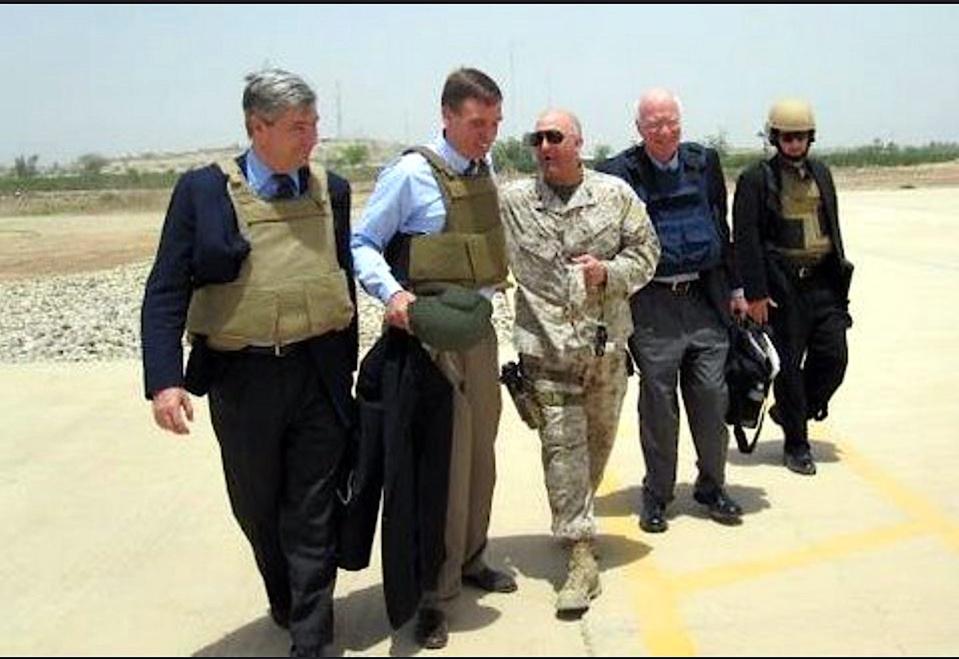
I am not alone in thinking his veteran credentials have flown under the radar.
“Senator Whitehouse is a tremendous advocate for Rhode Island veterans,” said Kasim Yarn, director of the state's Office of Veterans Services.
When I asked Sheldon recently what message he would like to get across to veterans, he replied, “This is pretty personal with me.”
Dedication to country runs deep in the Whitehouse family
After Pearl Harbor, young men across America rushed to sign up for the military.
“My father and uncle were two of those boys,” Sheldon said. “Dad was a Marine Corps dive bomber pilot; my uncle was a carrier-based fighter pilot. My uncle was killed over the Philippines.”
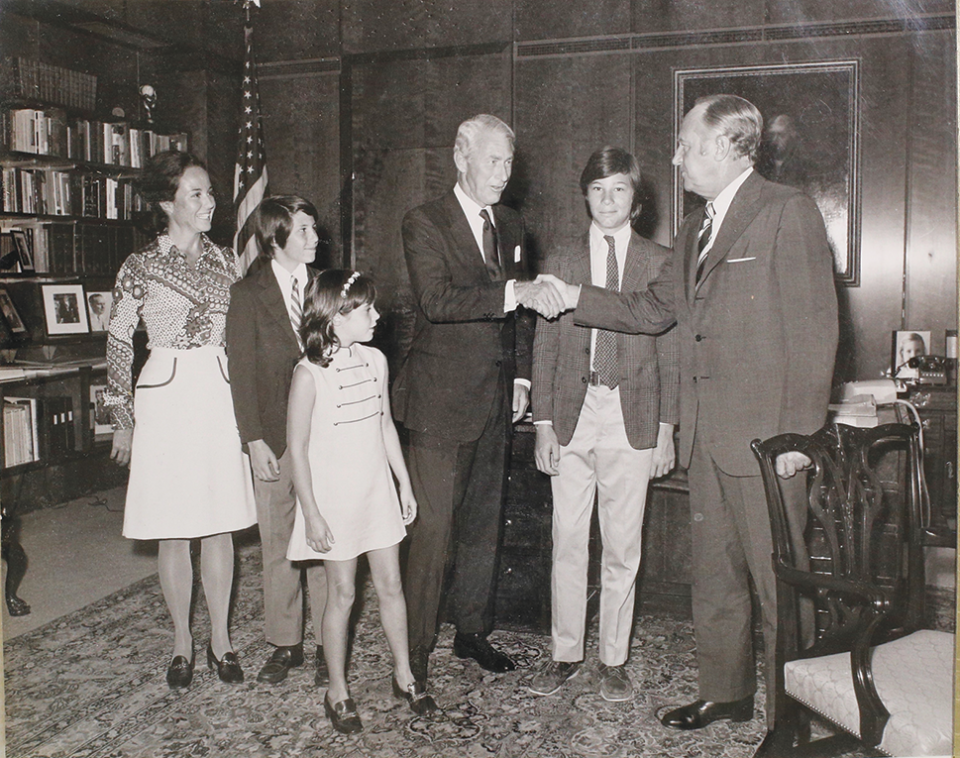
During his early days in the Senate, Sheldon traveled regularly with Navy hero John McCain. Visits included trips to Vietnam in 2012 and 2014. One of those trips took them to the Philippines. He rose at dawn to visit the Manila American Cemetery, to see the name of his uncle on the memorial: George Bruen Whitehouse. George was a 21-year-old Navy ensign flying fighters from the USS Cowpens. His plane was shot down on Dec. 12, 1944, and his body was never recovered. “His name is carved high up in the marble as a last memorial of his sacrifice,” Sheldon said.
His father, Charles Whitehouse, went on to a storied career in the CIA and then the State Department. His service included two tours of duty in Vietnam.
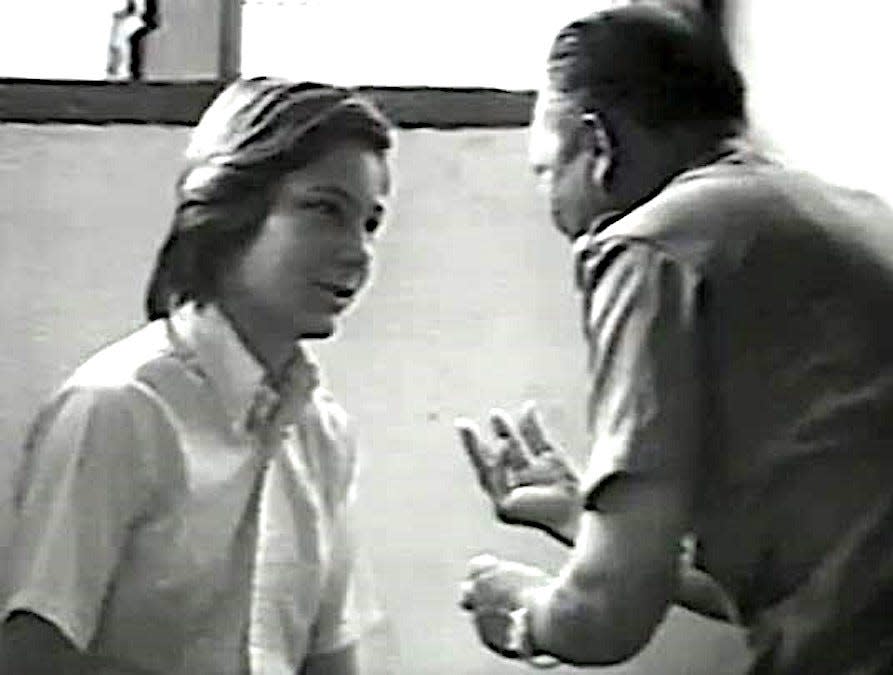
“He served in difficult, challenging, poor and war-torn countries his whole life," Sheldon said. "He then came out of retirement to set up the Special Operations Command in the Pentagon for President Ronald Reagan.
“I was raised in that life. We were often in dangerous and war-torn places, and we … faced the discomforts, the diseases and the dangers of those faraway postings.”
Visiting battle-torn An Lộc in 1972
The Battle of An Lộc lasted for 66 days in the spring of 1972, as the North Vietnamese advanced toward Saigon.
U.S. airpower and the determined stand of soldiers from the Army of the Republic of Vietnam repulsed the attack. Almost every B-52 in Southeast Asia was called in to strike the massing enemy tanks and infantry. On May 11 and 12, the U.S. Air Force managed a B-52 mission every 55 minutes for 30 hours straight — using 170 B-52s and obliterating regiments of North Vietnamese regulars in the process. The battle ended in June, but sporadic fighting continued in the environs for another two months.
In July 1972, Charles Whitehouse came to Saigon as deputy U.S. ambassador.
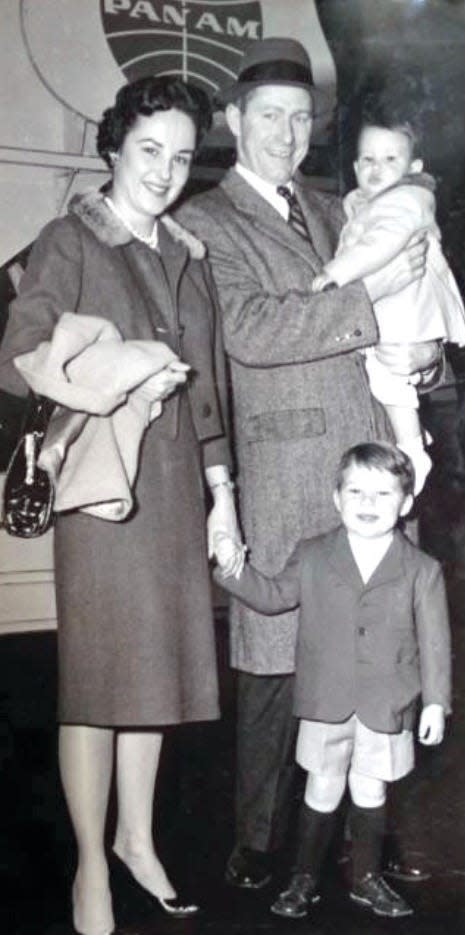
“Because of my father's position, I was able to go live with him," Sheldon recalled. "I think I was the only U.S. dependent there during the Vietnam conflict – certainly during the heavy fighting. I was 16 years old.
“My father was the first civilian to visit An Lộc after the NVA were driven off, and for some reason, he thought it was a good idea to bring me along.”
That was the closest Sheldon ever got to actual combat. He recalls that escorting aircraft fired suppression fire into the jungle outside the town. He remembers the destruction was like that of European cities reduced to rubble in World War II.
“Somewhere I have a photo of myself there,” Sheldon said. “I'm a scrawny little kid wearing a helmet that’s way too big, and a flak jacket that comes almost to my knees.”
Speaking about his son, Charles Whitehouse told Journal reporter M. Charles Bakst in 1998, “I think he got a look at what suffering the people there had undergone, and some sense of risk.”
How Sheldon Whitehouse spent his childhood vacations
Sheldon was a high school senior when he returned to Saigon in early 1973 to teach English to Vietnamese youngsters 10 to 14 years old.
“There’s a photo of him standing in front of the class,” Bakst wrote in 1998. “He looks 12. Actually, he was 17.”
While he was there, the Paris Peace Accords was signed and the POW exchange took place.
Everyone remembers the POWs from North Vietnam boarding their flights to freedom at the Hanoi airport.
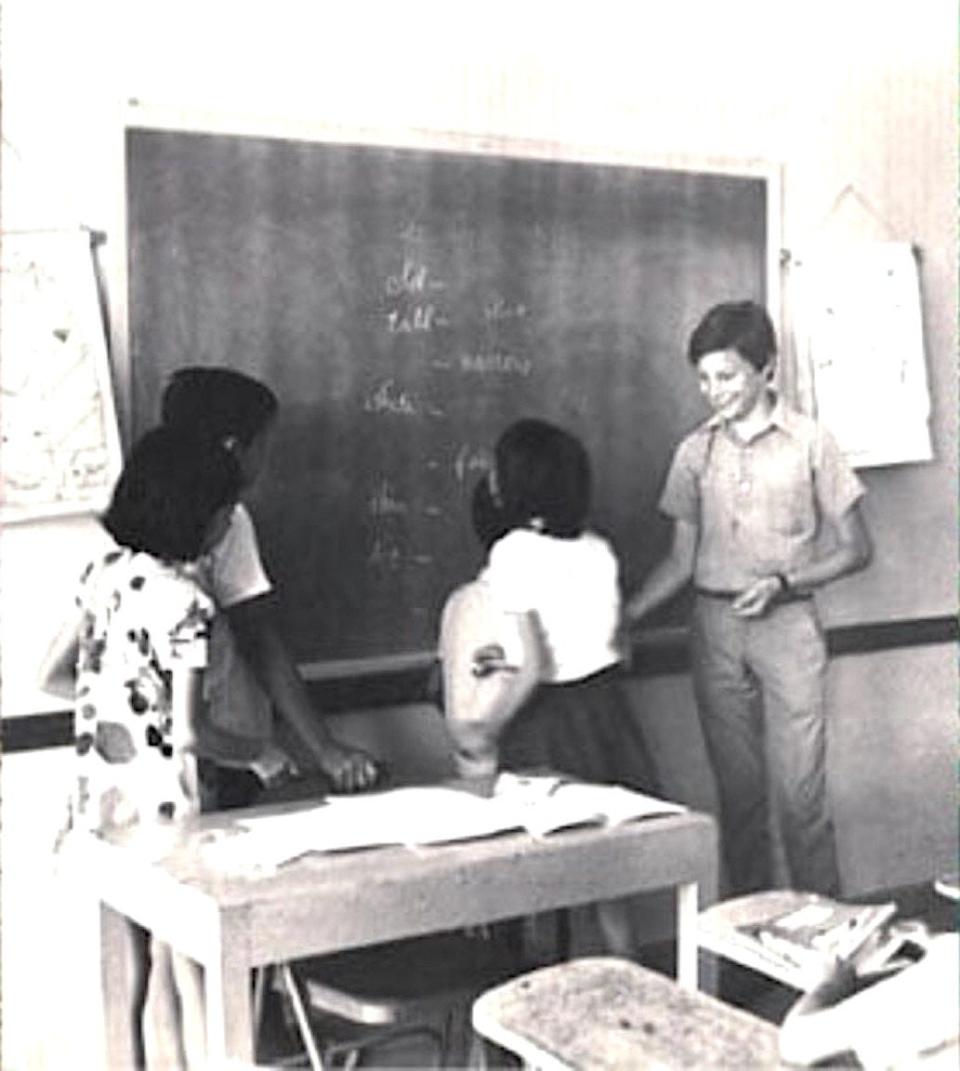
Less known is the second repatriation involving prisoners held by the Viet Cong in South Vietnam. They were to be brought to a rally point, where they would board helicopters for Saigon’s Tan Son Nhat airport.
“I was there the night that happened,” said Sheldon. “We went out to witness this extraordinary scene.”
Logistical problems arose with the Viet Cong getting the POWs to the rally point, and day turned into night.
“We finally heard the noise of the helicopters," he said. "Bright lights for the TV cameras illuminated the scene.
“Out of the dark came the helicopters, perfectly lined up. They all hovered together in the pool of light, about four feet off the ground, and then they all set down together. Then they all shut down together. The huge racket of the Huey engines stopped. Suddenly, it was super quiet.
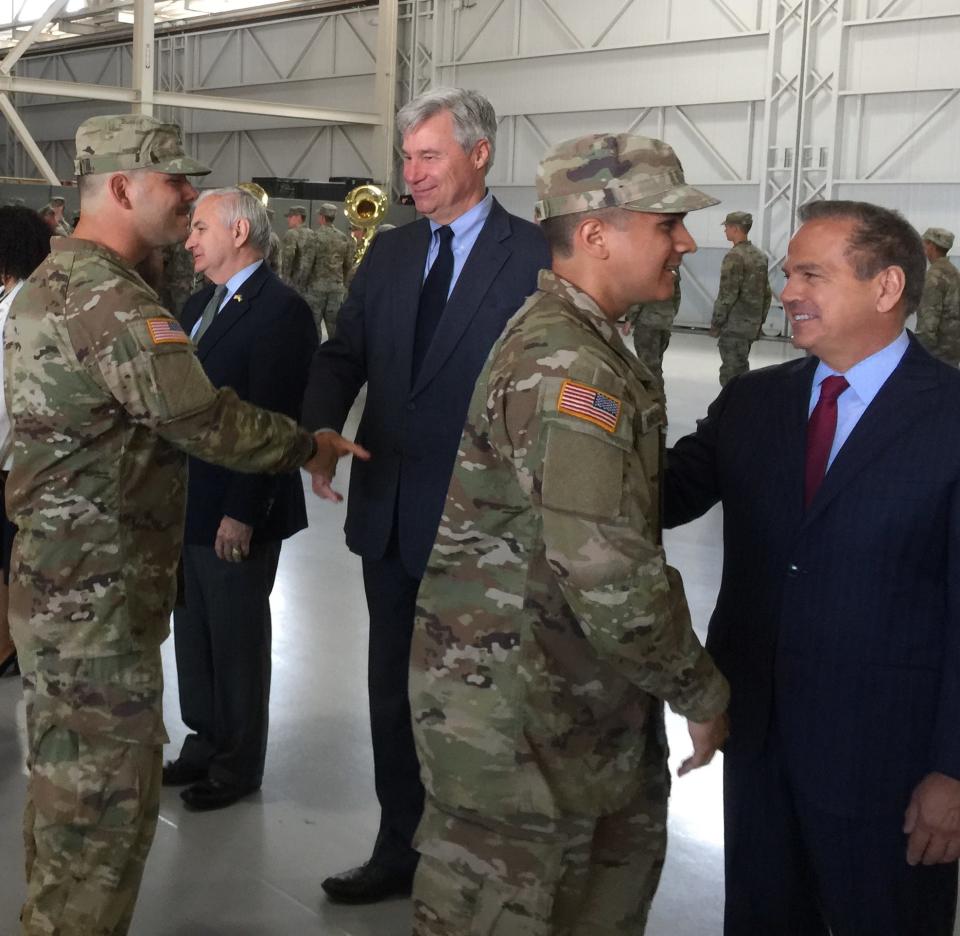
“Out of the helicopters came these incredibly gaunt figures. I particularly remember how pale they were, probably heightened by the klieg lights. Some were able to walk; others had to be carried. But as these ghosts of men, scarecrows of men, appeared, everyone present seemed to come together, forgetting for a moment the divisiveness back home.”
Fast-forward to today’s challenges
I asked Sheldon which piece of veteran-related legislation was most important to him. The 2022 PACT Act topped the list. It improved care and benefits for thousands of veterans nationwide exposed to toxic substances.
He had been an early advocate for expanding care and compensation for such exposures; several pieces of his legislation eventually evolved into the PACT Act.
More: Filing a claim for toxic exposure under the PACT Act
“His advocacy for the PACT Act, which extends VA health care and benefits for veterans exposed to burn pits, Agent Orange, and other toxic substances, will provide impacted veterans and their families with supports they earned and deserve,” said Yarn, of the Office of Veterans Services.
The senator added, “We're working very hard to ensure that every single veteran in R.I. is aware of this new suite of benefits.”
Once again, this is personal for him.
“Burn pit exposure from Iraq and Afghanistan had real resonance for me,” he said. “During my father’s first tour in 1970, he worked at Bien Hoa Air Base, about 20 miles northeast of Saigon. At the height of the war, it was said to be the busiest airport in the world.
One of the missions operating from Bien Hoa was “Operation Ranch Hand,” the moniker given to the Air Force’s defoliation mission. The National Library of Medicine says nearly 19 million gallons of herbicides were sprayed in Vietnam from 1962 to 1971, of which at least 11 million gallons was Agent Orange.
With the black humor common to combat zones, the motto of those who flew such missions was, “Only you can prevent forests,” a takeoff on Smokey Bear’s slogan about forest fire prevention.
“Service members endured an enormous amount of exposure to chemicals,” said Sheldon. “As did the Vietnamese civilians.”
One of those people was his father.
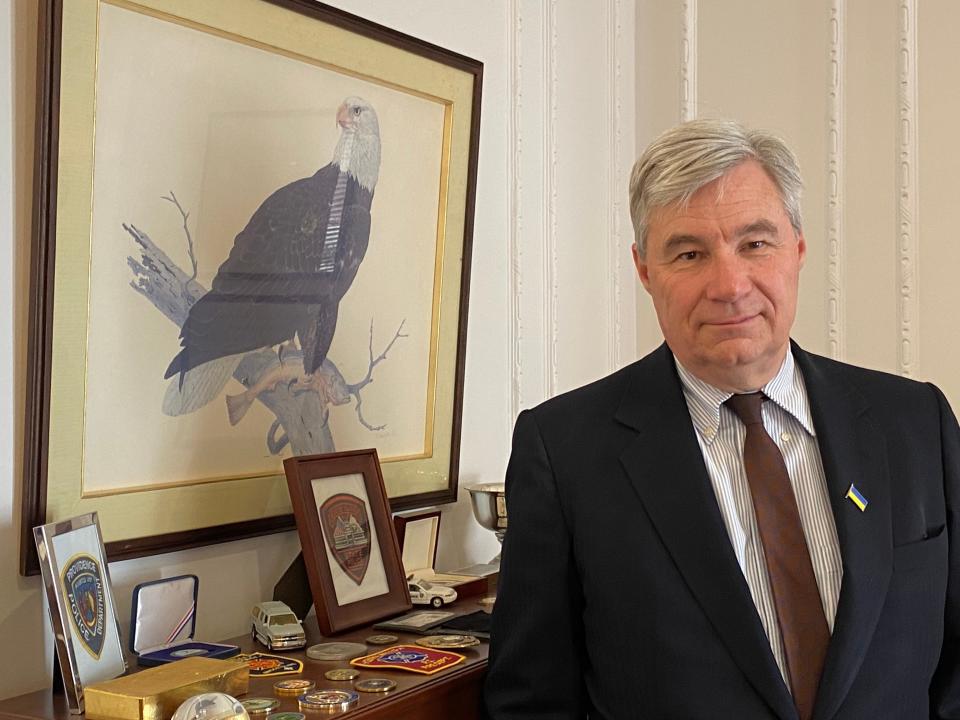
“He eventually died of cancer,” Sheldon said. “Can we prove cause and effect? No, but the evidence linking toxic exposure to cancer is significant.
“I can clearly see how people can get sick later in life from exposure to dangerous chemicals.”
Part of Bien Hoa’s chemical dump was blown up in the Tet attacks. “So there was stuff all over the place while my father was there. They are still cleaning up Bien Hoa, and will be doing so for many years to come.”
In April 2019, Sen. Patrick Leahy led a delegation of nine senators to Bien Hoa, where they launched a 10-year, $300-million project to clean up dioxin residues.
“When we put this trip together, I carefully picked workhorses, not show horses,” he told George Black of The New Republic.
One of the workhorses Leahy selected was Whitehouse.
This subsequent cleanup project is considered one of the largest chemical remediation projects in world history.
Other Whitehouse initiatives to benefit service members and vets
Since 2007 he has co-sponsored (and in some cases, helped shepherd through Congress) legislation to address wait-time backlogs at the VA; raise disability compensation and survivor benefits; expand dental care; and lengthen the grace period of foreclosure protection for service members.
Recently, he co-sponsored a bill that would provide suicide prevention resources for transitioning service members and veterans.
Well done, senator!
Calendar
Wednesday, Aug. 30, 11 a.m.-12:30 p.m.: Veterans Coffee Social at the Warwick Public Library. Organizer is Timothy Ruel from Operation Stand Down RI. Questions? Email truel@osdri.org
Friday-Sunday, Sept. 8-10, Traveling Vietnam Wall, at Rocky Point Park in Warwick. The American Veteran Traveling Tribute Memorial will be free to visit 24 hours a day until 5 p.m. on Sept. 10. At 2:09 p.m. each afternoon, the names of the 209 Rhode Island service members lost in the Vietnam conflict will be read. Gaspee Days Committee, the City of Warwick, Operation Stand Down Rhode Island (OSDRI), and RI 250 are hosting the event. To make a donation or to learn more about sponsorship opportunities, visit the events page of Operation Stand Down Rhode Island OSDRI.org.
Thursday, Sept. 14, 4:30-7 p.m.; Learn to Surf Cast for Free, at Scarborough State Beach in Narragansett. The Providence Vet Center is teaming up with the Narragansett Surf Casters and Rhode Island Department of Environmental Management to offer a class to 15 service members/veterans. All the equipment you need to learn to catch fish from shore, along with instruction, will be provided by members of Narragansett Surf Casters. Food and refreshments will be provided as well. Please sign up with Justyn Charon by phone at (401) 739-0167 or via email at Justyn.Charon@va.gov.
To report the outcome of a previous activity, or to add a future event to our calendar, please email the details (including a contact name and phone number/email address) to veteranscolumn@providencejournal.com.
This article originally appeared on The Providence Journal: Combat zones to Capitol Hill: Senator Whitehouse is veterans' advocate

